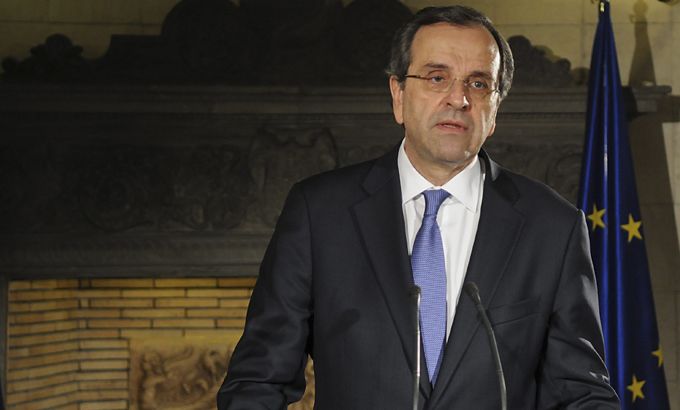
Greece: Embattled but defiant
Will a political fallout derail the Greek prime minister’s plans to push through austerity measures?
The Greek Prime Minister Antonis Samaras says austerity cuts will continue even after a member of his coalition decided to pull out of the government.
I think it's a mistake on Mr Kouvelis' part what he is doing now ... I think actually this will also cost him politically .... I think he will support the government but not as whole-heartedly as he did a few months ago - but the government does not need that sort of support anymore.
The Democratic Left party, the smallest party in Greece’s ruling coalition, which quit the coalition after a dispute over the closure of the state broadcaster ERT.
Keep reading
list of 4 itemsRussia’s Putin eyes greater support from China for Ukraine war effort
India-Iran port deal: A gateway to Central Asia or a geostrategic headache?
India’s income inequality widens, should wealth be redistributed?
Fotis Kouvelis, the Democratic Left party leader, had demanded the government fully reopen broadcaster ERT which it closed on June 11, causing the loss of 2,700 jobs.
The move weakens the coalition just one year into the prime minister’s four-year mandate to stave off financial collapse.
This could leave the prime minister with a real struggle to get through parliament the unpopular reforms demanded by those who are bailing the country out to the tune of billions.
Samaras says he will stick with the changes needed to keep the rescue loans coming: “I want us to proceed all together, as we started, But I will forge ahead in any case, of course, with better coordination and even some re-organisation of the programme. But our target is to finish our struggle and to save the country and complete everything within the four-year mandate.
“We hope that we will have the support of the Democratic Left but Mr [Evangelos] Venizelos is correct when he says that some are bearing the full weight of the responsibility whilst others infrequently shoulder the burden.”
The political crisis we have now in government - in corridors of power - is a mere reflection of two things: firstly, the deteriorating economy and secondly, of the great expectations that this government foolishly cultivated over the last few months …. there was nothing but hot air in this Greek 'success story'.
Here is how the crisis unfolded.
In December 2004, the European Commission said the Greek government had falsified budget deficit data prior to joining the eurozone. Five years later, Greece’s credit rating was downgraded and then-Prime Minister George Papandreou announced tough public spending cuts.
From November 2009 to March 2010, three rounds of austerity measures were announced.
In April 2010, eurozone countries approved a $145bn rescue package for Greece and the government announces yet more spending cuts. By February 2012, more austerity measures were demanded as a pre-condition for a new $180bn bailout package.
Among other things, lenders want Greece to cut 150,000 public sector jobs and slash public sector salaries by 15 percent, cut the minimum wage by 22 percent, raise the retirement age from 61 to 65, and cut more than $1bn from health spending.
An election this time last year saw the formation of a three-party coalition government bringing together New Democracy, Pasok and the Democratic Left.
Last week, the government closed state broadcaster ERT sparking immediate protests. The Democratic Left party quit the governing coalition over the failure to fully reinstate ERT.
But senior eurozone officials and the International Monetary Fund (IMF) have played down concerns Greece could run out of money, saying there was still time to remedy the situation.
So what are the challenges facing the Greek prime minister? How hard will it be to do what Greece’s bailout partners say and continue with these huge austerity measures?
Inside Story, with presenter David Foster, discusses with guests: Petros Doukas, a former Greek deputy finance minister; Petros Fassoulas, the chairman of the European Movement in the UK; and Yanis Varoufakis, a professor of economics at the University of Athens.
|
“I think Mr Kouvelis and a lot of people in his party don’t want to torpedo political stability in Greece. There are a lot of responsible people in the party and they are fully aware that political stability is necessary to push forward with necessary reforms, which are of course subject to approval if we are going to continue receiving a bailout from the European Union and the IMF.” Petros Fassoulas, the chairman of the European Movement in the UK |